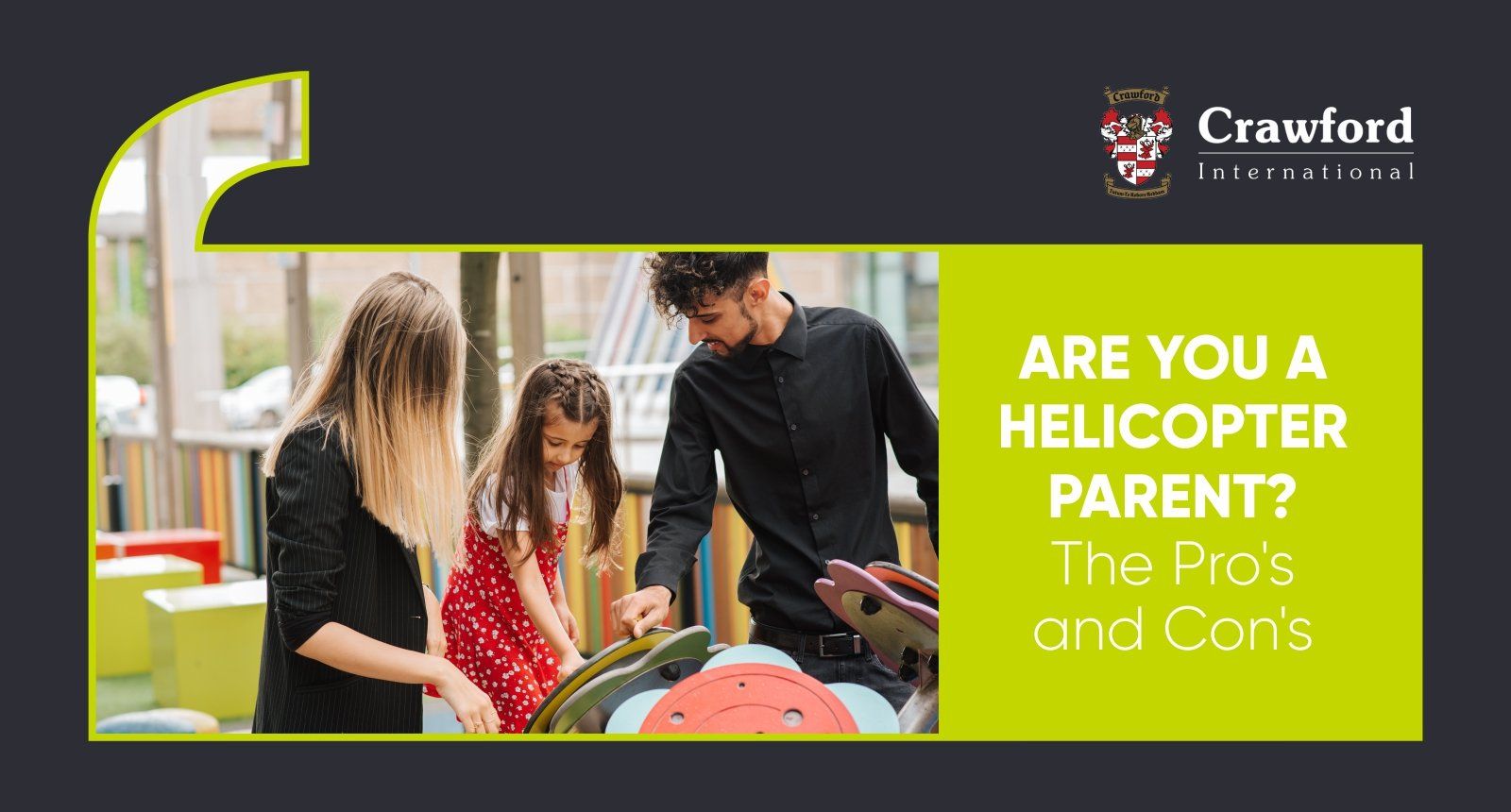Are you a helicopter parent?
ADvTECH Group • July 6, 2022
Read on to explore the pros and cons of the helicopter parenting style.

We all have different parent styles, and experts categorise these as authoritative, permissive, authoritarian, etc. Helicopter parenting is one of these parenting approaches and is called so because helicopter parents tend to hover over their child’s every move, swooping in to rescue them at the very first sign of trouble. But believe it or not, this kind of overprotective parenting does have its pros and cons.
Signs of a helicopter parent
The most iconic characteristic of a helicopter parent is being overly protective, even when your child has grown out of those toddler years. This kind of parent could also have these traits:
- Micromanaging a child’s entire life through constant supervision, control, and guidance.
- Monitoring a child’s every move at an age-inappropriately way rather than encouraging some independence and autonomy.
- Overly involving themselves in all aspects of a child’s life, school, friendships, activities.
- Protecting a child from experiencing any disappoint or failure instead of letting a child make mistakes.
- Doing tasks for a child that they could do for themselves, such as dressing, homework, etc.
- Stepping in when a child experiences any conflict.
- Not allowing a child to take part in age-appropriate activities for fear of them getting hurt or struggling.
- Making decisions for the child, which could even include what extramurals to join or university courses to take on.
- Trying to be with their children constantly, even volunteering as a class parent or sports coach just to create ways to be able to monitor them.
Pros of being overly protective
Being an involved parent is one of the hallmarks of helicopter parenting, and the support of a parent is indeed important for a child’s emotional and intellectual development.
What’s more, parent involvement models a positive attitude towards school for a child, which in turn has a favourable effect on their homework habits, school attendance, and academic performance.
As the child gets older, research has shown that supportive (but not overly protective) parenting during childhood affects how a university-aged young adult adjusts to life as a ‘grownup’ and its increased demands. This includes things like decision making, life skills, physical and mental health, even consumption of alcohol.
Cons of helicopter parenting
It’s when a supportive, responsive parent crosses the line into being an overprotective parent that the downsides of helicopter parenting come in.
Research has shown that involving yourself in your child’s life past the point of what’s appropriate at their development level and not encouraging their independence as they grow affects a child’s resilience. These children experience more anxiety and depression, low self-esteem, fear of failure, poor coping skills, and even increased substance abuse due to search for freedom.
This largely comes down to the fact that a child who has been shielded from every difficult life experience simply cannot face challenges as they grow into teens and young adults. They really find it hard to be independent beings.
What’s more, a sense of entitlement and narcissism is seen in adults whose parents adoptive this style of parenting.
The good news is that it’s not really the extent of a parent’s involvement in their child’s life, but rather how that involvement plays out that matter most in how helicopter parenting affects a child long-term. A supportive, responsive environment is without a doubt one that a child thrives in as they grow. However, the most social, emotional, and cognitive benefit comes from supportive parenting that allows a child the autonomy to make decisions for themselves and solve their own problems.
Read another Crawford International parenting blog here.












